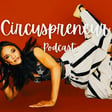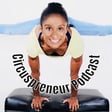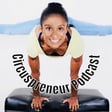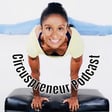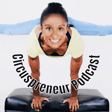
Artletic Science with Dr.Stephanie Greenspan- Circuspreneur Podcast Ep.100
#Circusinjuries #CircusResearch #Circusmedicine #CircusArts
On this episode of the Circuspreneur Podcast, host Shenea Stiletto interviews founder of Artletic Science Dr. Stephanie Greenspan. Dr. Stephanie Greenspan earned her Doctor of Physical Therapy from the University of Southern California. Her post-graduate training included residencies in orthopedic and neurologic physical therapy, and a fellowship in orthopedic manual therapy. She is a board certified specialist in both orthopedic and neurologic physical therapy, and an Associate Professor of Physical Therapy at Samuel Merritt University.
As a clinician she works with recreational to professional dancers and circus artists with a focus on decreasing injury risk and optimizing performance.
This includes working as the physio for the resident 7 Fingers show “Dear San Francisco” at Club Fugazi since it’s installation in 2021. Stephanie brings her background as a dancer, aerialist, aerial coach, and researcher into her clinical practice.
She also offers workshops and wellness screenings for pre-professional and professional training programs including Spire pre-professional program at Kinetic Arts Center in Oakland, FlyCo at AWOL Dance Collective and the Elements Training Company at the Circus Project, both in Portland, Oregon. Her research focuses on the study of injuries and movement in the circus arts.
